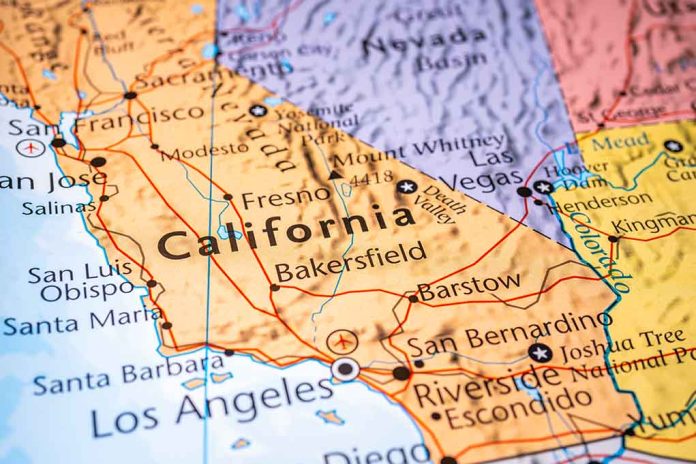
German tourists face legal consequences after vandalizing Joshua Tree National Park with paintballs and slingshots, causing significant damage to the protected landscape.
At a Glance
- Three German tourists admitted to using paintball guns and slingshots in Joshua Tree National Park
- Park rangers discovered fresh yellow paintball splatter on structures, signs, and bathrooms
- The tourists were issued federal violation notices, facing potential fines up to $5,000 and six months in prison
- Paintball markers and slingshots are prohibited on National Park Service lands
- Joshua Tree National Park spans nearly 800,000 acres and attracts over three million visitors annually
Tourists Caught Red-Handed in Act of Vandalism
A group of German tourists has found themselves in hot water after defacing Joshua Tree National Park with paintballs and slingshots. The incident, which has outraged park officials and nature enthusiasts alike, was discovered during a routine campground patrol. A vigilant park ranger spotted fresh yellow paintball splatter on various structures and signs, prompting an immediate investigation.
The three tourists, whose names have not been disclosed, admitted to using a compressed paintball gun and slingshots within the park boundaries. Park rangers swiftly confiscated the offending items, including three slingshots, a paintball marker, paintballs, and other related equipment. At least 11 roadway signs near the park’s west entrance were found shot with yellow paintballs, marring the natural beauty of this protected landscape.
German tourists accused of defacing US national park with paintballs https://t.co/6uh5Fhtk47
— BBC News (World) (@BBCWorld) August 9, 2024
Legal Consequences and Park Regulations
The German tourists now face serious legal repercussions for their actions. They have been issued federal violation notices for vandalizing, defacing, and destroying property within a national park. Such offenses can result in a maximum fine of $5,000 and up to six months in prison, highlighting the severity with which the United States treats acts of vandalism in its protected natural areas.
“Defacing or altering the NPS landscape, no matter how small, is against the law,” said Joshua Tree National Park’s acting chief ranger Jeff Filosa. “It diminishes the natural environment that millions of people travel the world to enjoy.”
It’s important to note that paintball markers and slingshots are considered weapons and are strictly prohibited on National Park Service lands. This incident serves as a stark reminder to all visitors about the importance of respecting park rules and preserving these natural treasures for future generations.
Impact on Joshua Tree National Park
Joshua Tree National Park, spanning nearly 800,000 acres and attracting over three million visitors annually, is known for its unique desert landscapes and iconic Joshua trees. The vandalism not only mars the visual beauty of the park but also diverts valuable resources from other critical park management priorities.
“The park is regularly tasked with removing graffiti of all types, using time and resources that could be better dedicated to other priorities,” explained Filosa.
This incident is not the first time Joshua Tree National Park has faced challenges. In 2020, wildfires killed over a million Joshua trees, and during a partial government shutdown in 2019, the park experienced significant vandalism. These events highlight the ongoing threats to our national parks and the need for stringent protection measures.
A Call for Responsible Tourism
The incident with the German tourists underscores the need for increased awareness and education about responsible tourism in national parks. Visitors from all over the world come to experience the natural wonders of places like Joshua Tree, and it’s crucial that they understand and respect the delicate ecosystems they are entering.
Park officials are working diligently to clean up the paintball splatter and repair the damage caused by this act of vandalism. However, the incident serves as a somber reminder of the ongoing challenges faced by national parks in balancing public access with environmental protection.
As Joshua Tree National Park continues to attract millions of visitors each year, it is incumbent upon all of us to act as stewards of these precious natural spaces. By respecting park regulations, practicing Leave No Trace principles, and educating others about the importance of conservation, we can help ensure that future generations will be able to enjoy the unique beauty of America’s national parks for years to come.





